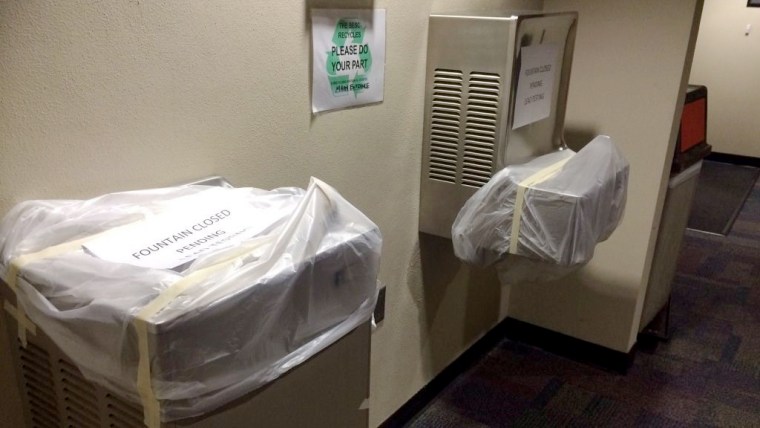The eco-conscious city of Portland, Oregon, has joined the growing list of places around the country where parents have learned their children were drinking lead-tainted water in school.
Since the Flint water crisis erupted last year, school districts from coast to coast have stepped up testing of fountains and sinks. From Newark to Boston to Detroit, city after city has reported elevated levels of lead in the water of some educational buildings.
Portland, known for its embrace of a healthy lifestyle and all things organic, notified public school parents last week that fixtures in two schools tested in March showed toxins above the level federal regulators allow.
Related: Does Your City Test Your School's Drinking Water?
While school officials were fielding complaints from parents about those results and a delay in making them public, new data emerged suggesting an even broader issue: high lead levels found in 47 buildings that were tested between 2010 and 2012.
"I feel betrayed," said Julie Frank, who was scrambling to get her 8-year-old son Joey a blood test on Wednesday after learning elevated levels were found in his school, Reike Elementary, as far back as 2001.
"My concern is that my son has slowly been poisoned at school over the past three years. I'm concerned there’s been a massive cover-up of this, and I'm concerned about the ability of the Portland Public Schools to even fix it."

Portland Public Schools is now putting its 49,000 students on bottled water until it can test all 78 schools over the summer. It is also hiring an outside investigator to answer questions about the prior testing, results and response.
"What was done when? Were the repairs made immediately? Did it take care of the problem? Or did the problem not get addressed?” Portland Public Schools spokeswoman Christine Miles asked.
The Environmental Protection Agency says action should be taken if the lead in a home exceeds 15 parts per billion or 20 parts per billion in a school. But the federal government doesn't actually require most schools to test, and as NBC News has reported, few big cities have ongoing, comprehensive testing programs.
Experts agree there is no safe level of lead, a highly toxic metal that can cause serious health and developmental problems, especially in young children.
Portland last conducted system-wide lead testing of school water in 2001, followed by repairs and retesting. After last year's scandal over widespread lead-poisoning in Flint, Michigan, parents at two Portland schools — Creston and Rose City — demanded their kids' water be tested.
Results from tests carried out in March showed between six and eight sinks and fountains at each of the two schools were above the action level, although parents weren't notified until last week and the equipment was not immediately taken out of service.
Martha Ruttle, mother of a second grader at Rose City, said that was unsettling enough. Then came the news, first reported in Willamette Week, that water at dozens of other schools tested between 2010 and 2012 showed elevated results.
"No one knew about it," Ruttle said.
"My concern is that my son has slowly been poisoned at school over the past three years."
The district database shows there were fountains that tested at double or triple the action level or even higher; a fountain in the music room at one school yielded a result of 174 ppb. A sink fountain in the storeroom of an administrative building came in at a staggering 1700 ppb.
The district said it could not provide information on why the fixtures in those schools were tested, if anyone was notified of the high results, and whether any remediation or followup was done.
Kim Sordyl, the mother of a third-grader and a fifth-grader at a school where a teachers' drinking water fixture tested at 32 ppb, said she was appalled by the lack of communication.
"Forty-seven schools and nobody got any notification about any repairs, as far as I can see," she said.
In a statement, schools superintendent Carole Smith admitted the district had made mistakes.
"Portland Public Schools regrets not having notified families and staff as soon as the tests indicated that there were elevated levels of lead," Smith said of the delay in protecting children at Creston and Rose City from lead.
"While PPS staff worked quickly to replace all fixtures that indicated elevated levels of lead, we did not turn off the water in those faucets and drinking fountains prior to them being replaced and we should have."

